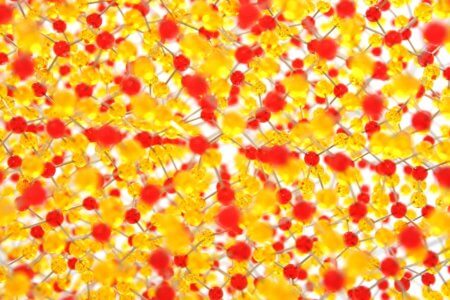Ansa Biotechnologies, Inc, a Berkeley, CA-based startup, is developing a technique to control additions of a polymerase that use TdT for de novo DNA synthesis.
The ability to synthesize “gene-length” DNA molecules (>500 bases) is invaluable for biological and biomedical research and is a key enabling technology for the rapidly growing field of synthetic biology. Existing methods for producing DNA sequences rely on organic chemistry and are generally limited to the direct synthesis of 200 base molecules, necessitating further assembly into gene-length products. However, this process is failure-prone and not compatible with all sequence targets.
The company’s technology involves a new DNA synthesis method based on enzymes, which, in contrast to organic chemistry, promises to enable the direct synthesis of gene-length DNA molecules. An additional benefit of enzymatic DNA synthesis is that it is performed in aqueous conditions using nontoxic reagents, whereas chemical DNA synthesis uses toxic reagents and produces hazardous waste. The enzymatic DNA synthesis method, once fully developed, will be the core technology supporting a rapid DNA synthesis service that will accelerate research in life sciences and synthetic biology.
Ansa targets optimized “TdT-dNTP conjugate” reagents for a new enzymatic DNA synthesis method. The specificity of enzymes promises to enable the direct synthesis of much longer DNA constructs than is possible with the industry-standard chemical DNA synthesis method in use today, accelerating workflows in synthetic biology. A TdT-dNTP conjugate consists of the “template-independent polymerase” enzyme TdT with a tethered nucleoside triphosphate substrate that can be incorporated into a DNA molecule by TdT. After adding the tethered nucleotide to a DNA molecule, the polymerase remains attached to the end of the DNA molecule via the tether to the added nucleotide, blocking other conjugate molecules from further extending the DNA molecule, and thus ensuring that the molecule only gets extended by one nucleotide. The linkage can then be cleaved to release the polymerase and expose the DNA molecule for subsequent extension.
Previous research has demonstrated that TdT-dNTP conjugates based on a photocleavable linker can be used for stepwise de novo DNA synthesis.
In 2019, the company received an National Science Foundation grant, SBIR Phase I: Reagent Development for a Rapid Enzymatic DNA Synthesis Platform, in the amount of $225,000, to develop new TdT-dNTP conjugates based on a linker that can be rapidly and specifically cleaved using a hydrolase enzyme, finally realizing the promise of a fully-enzymatic DNA synthesis method.
According to Pitchbook, the company completed a $4.7 million seed round in July 2020.
